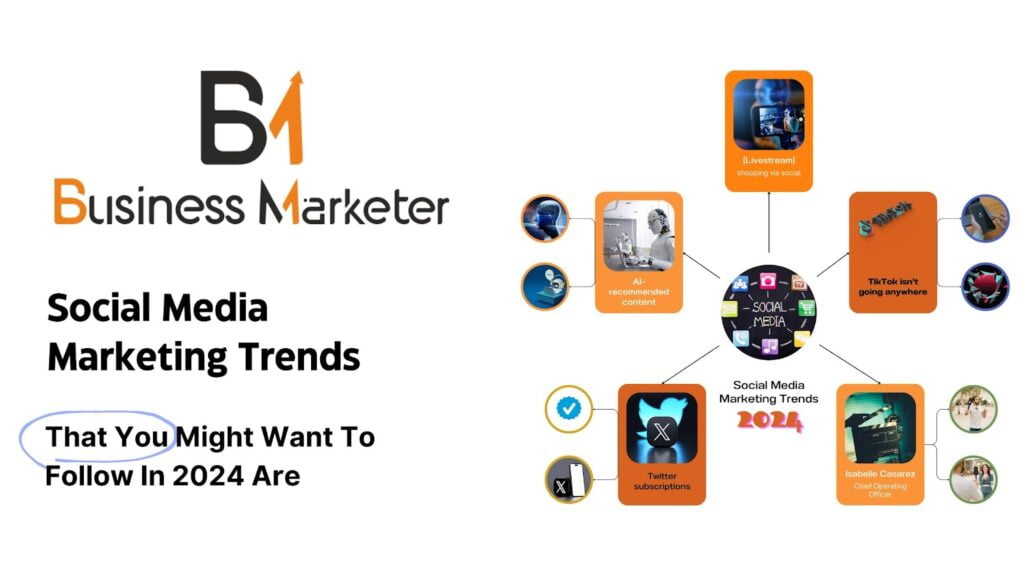
Introduction
As a Business Marketer, I’ve witnessed SEO evolve from keyword stuffing and backlink games to a sophisticated practice driven by user intent, analytics, and quality content. Now, with Artificial Intelligence (AI) and Voice Search reshaping digital behavior, businesses face a new era of opportunities — and challenges.
For marketers, this is not just about keeping up with Google’s algorithms; it’s about strategically preparing for a world where search is more conversational, personalized, and AI‑driven than ever before. This blog dives deep into what the future holds for SEO, from the lens of a business marketer who focuses on growth, ROI, and long‑term brand visibility.
1. How AI Is Transforming SEO for Businesses
1.1 AI‑Powered Search Engines
From Google’s RankBrain and BERT to the rise of predictive search, AI is making results smarter and more personalized. For marketers, this means:
- Investing in topic‑based clusters instead of isolated keywords.
- Building content that matches user intent, not just search terms.
- Leveraging AI‑driven insights to anticipate consumer needs before they even search.
1.2 AI in Marketing Content Creation

Tools like Jasper, ChatGPT, and MarketMuse are transforming how marketers research, draft, and optimize content.
- Faster content production for blogs, email campaigns, and product descriptions.
- Data‑backed topic selection to reduce guesswork.
- A stronger focus on semantic optimization rather than old‑school keyword density.
1.3 Predictive Analytics for Marketing ROI
AI doesn’t just help with ranking — it enhances customer journey mapping.
- Forecasting buyer intent helps marketers design campaigns with precision.
- AI‑powered analytics identify which SEO efforts drive the highest conversions.
2. The Business Impact of Voice Search
2.1 The Rise of Conversational Commerce
With over 50% of searches predicted to be voice‑based by 2025, voice search is no longer a convenience — it’s a business necessity.
- Local businesses benefit from “near me” queries.
- E‑commerce brands gain visibility when optimizing for voice‑enabled shopping.
2.2 How Marketers Must Adapt
- Consumers now use complete questions instead of 2‑word queries.
- Featured snippets are crucial because voice assistants often read just one answer.
- Marketers need to own position zero if they want their brand to be heard.
2.3 Opportunities for Business Marketers
- Create FAQ‑style content that directly addresses customer concerns.
- Strengthen local SEO for location‑based services.
- Integrate conversational keywords into marketing strategies.
3. Future SEO Trends Every Business Marketer Should Prepare For
- Conversational AI in Search – Chatbots and voice assistants replacing static search results.
- Visual & AR Search – Customers identifying products via Google Lens or AR filters.
- Zero‑Click Results – More instant answers, fewer organic clicks, meaning brands must focus on featured snippets.
- Hyper‑Personalized Search – Tailored results require marketers to use micro‑targeting strategies.
- E‑A‑T for Brand Trust – Google rewards brands with credibility, real‑world authority, and trust signals.
4. Actionable SEO Strategies for Business Marketers
4.1 Intent‑Driven Marketing
Stop chasing keywords — focus on what customers truly want. Use tools like SEMrush and Google Search Console to identify high‑intent queries.
4.2 Voice Search Optimization
- Incorporate natural, conversational language.
- Add FAQ sections to blogs and service pages.
- Optimize for local and mobile searches.
4.3 Structured Data & Schema Markup
This is non‑negotiable for business marketers. Structured data helps AI understand your brand’s content contextually, increasing chances of winning rich results.
4.4 Mobile & User Experience
SEO success = fast, mobile‑first websites with optimized Core Web Vitals.
- A slow site costs conversions.
- A smooth user journey builds loyalty.
4.5 Leveraging AI SEO Tools
- Frase & SurferSEO: Content optimization.
- Clearscope: Semantic relevance.
- AI Chatbots: Customer engagement & lead qualification.
5. Challenges Business Marketers Must Navigate
- Over‑Reliance on AI Tools – Automated content can dilute brand authenticity.
- Privacy Concerns – Personalized search requires consumer data, raising compliance issues.
- Competition for Snippets – With voice assistants reading only one answer, visibility battles intensify.
- Declining Organic Clicks – More zero‑click searches demand diversification via social, video, and email channels.
6. Why the Human Touch Still Wins
As a Business Marketer, I believe AI is a powerful tool — but human creativity and trust remain the foundation of successful SEO.
- Authenticity builds loyalty.
- Storytelling drives emotional engagement.
- Industry expertise differentiates real brands from AI‑driven content farms.
The future of SEO is not AI vs. humans; it’s AI + humans working together.
Conclusion
From a Business Marketer’s perspective, the future of SEO in the age of AI and voice search is about striking the right balance:
- Harnessing AI for data‑driven insights and automation.
- Optimizing for voice and conversational search.
- Building authentic, authoritative content that resonates with real people.
SEO is no longer a technical checkbox — it’s a strategic business function. The brands that adapt to conversational, AI‑powered search while maintaining a human‑centric approach will dominate digital visibility and customer trust in the years to come.



Thanks for sharing this information